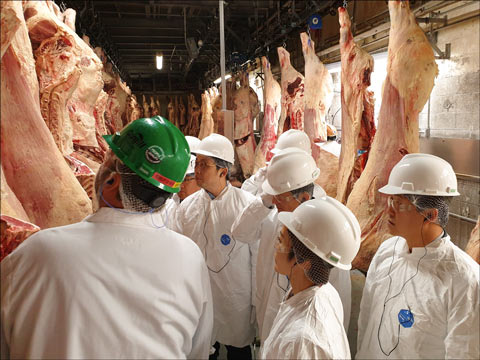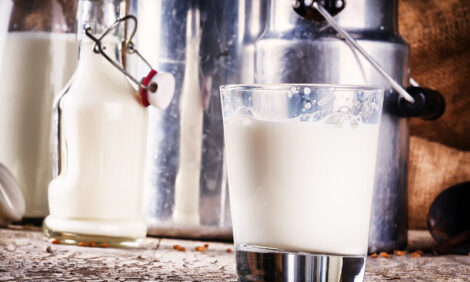



As coronavirus infections rise in meat plants, Canada lets companies decide when to close
Reporting from Reuters finds that Canada’s public health officials are allowing decisions on meat plant closures to be made by packing companies, despite provincial authority to enforce stoppages.According to analysis from Rod Nickel of Reuters, Canada’s health officials are deferring to meat packing companies when deciding when to suspend operations, even though provincial health officials have the power to close plants.
Nickel reports that in Cargill Inc's High River, Alberta plant, supplier of more than one-third of Canada's beef, 391 workers were sick with coronavirus when the company suspended operations.
However, Alberta Health Services (AHS) has the power to close plants with unsafe conditions, spokesman Tom McMillan said.
The impact of such decisions extends beyond plant walls. They are at the heart of Alberta's two largest community outbreaks and could foreshadow dilemmas likely to emerge as other industries restart.
Canada’s approach serves as a stark contrast with the US’s active political role with processing plants, which are experiencing their own coronavirus outbreaks. Workers in numerous North American plants have fallen ill or walked off the job. President Trump issued an executive order stipulating that meat plants remain open, and state and local officials successfully petitioned for some to close, including Smithfield Foods’ South Dakota abattoir.

Jon Nash, President of Cargill Protein North America, said Cargill reduced production at its Alberta plant on 13 April and remained open before closing entirely a week later to avoid wasting food, and because ranchers needed a market for cattle.
Factors outside the Cargill plant, such as crowded households and carpooling, contributed to the spread in High River, health officials said.
Cargill said on 29 April that High River would resume reduced production on 4 May after a two-week closure for cleaning and additional safety measures.
Cargill's decision to operate as long as it did before the temporary closure rankled some workers.
"It absolutely pisses me off," said Jamie Welsh-Rollo, a single mom who seals meat in plastic in the High River plant and is a United Food and Commercial Workers Union (UFCW) shop steward. "We're looked at as numbers."
At least eight meat plants across Canada have temporarily closed due to the pandemic. As of 29 April, 821 workers at High River, nearly 37 percent of the workforce were infected with coronavirus. One worker has died.
And Cargill is not alone. A JBS SA beef plant in Brooks, Alberta slowed production but remains open after 276 infections and one death.
In High River, Welsh-Rollo feared passing the virus to her four-year-old son, who has an auto-immune deficiency, and saw problems with Cargill's precautions.
According to Welsh-Rollo, Cargill asked health screening questions in English to workers entering the plant. However, many staff members are immigrants or foreign workers. Welsh-Rollo also reports that the 31-year-old plant was too cramped to make distancing measures effective.
Cargill's Nash said the company has worked closely with AHS on safety protocols, including face masks for workers.
Adrienne South, spokeswoman for Alberta's Labour Minister, said multiple ministries helped ensure the plant's safety but added that "the Canadian Food Inspection Agency (CFIA) is responsible for the plant."
CFIA said in a statement that it cannot suspend plant operations over coronavirus, since its authority to stop food production over health risks is limited to food safety concerns.
The decisions to prolong operations baffle Sylvain Charlebois, director of the Agri-Food Analytics Lab at Dalhousie University, an institute that analyses food and agriculture issues.
"I don't understand why it took so long [to close] at High River," he said.
Read more about this story here.


